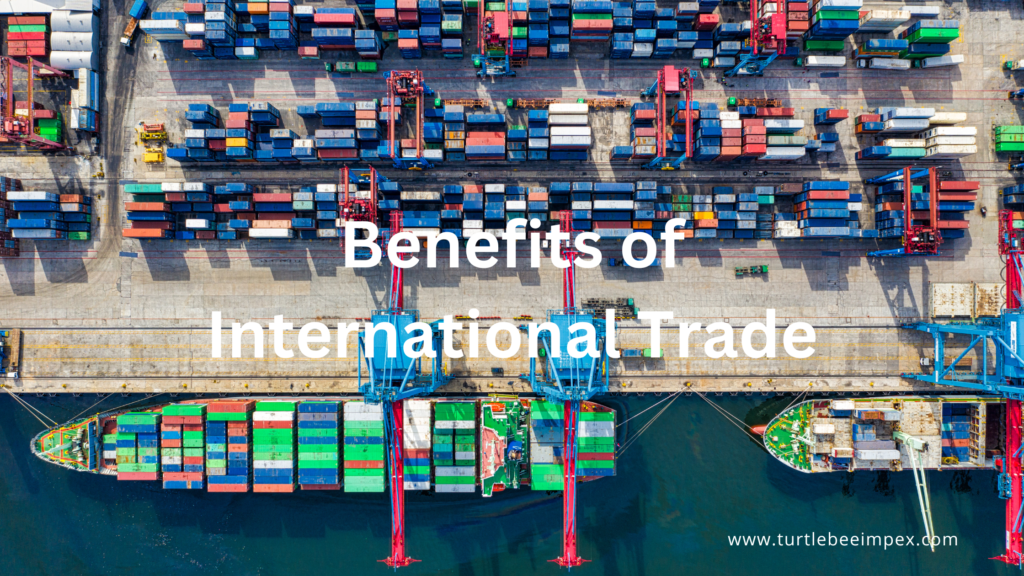Introduction
International trade has been a vital driver of economic growth and development throughout history. It allows countries to specialize in producing goods and services they have a comparative advantage in, while benefiting from goods and services produced by other nations. The exchange of goods, capital, and ideas across borders creates a global marketplace that offers numerous advantages. In this blog, we will explore the benefits of international trade and understand why it plays a crucial role in shaping the global economy.
1. Economic Growth and Development
One of the primary benefits of international trade is its contribution to economic growth and development. By engaging in trade, countries can access larger markets beyond their domestic boundaries. This expanded market provides opportunities for businesses to increase sales, scale production, and achieve economies of scale. As a result, countries can experience higher levels of productivity, increased employment opportunities, and overall economic growth.
2. Access to a Wide Range of Goods and Services
International trade allows consumers to access a wide variety of goods and services that may not be available or produced domestically. Through imports, countries can meet the demands and preferences of their citizens by offering a diverse range of products. This access to a broader selection of goods and services enhances consumer choice, quality, and affordability.
3. Comparative Advantage and Efficiency
International trade is based on the principle of comparative advantage, which states that countries should focus on producing goods and services they can produce more efficiently and at a lower opportunity cost than other nations. By specializing in the production of certain goods, countries can achieve higher efficiency, lower costs, and increased productivity. This specialization leads to a more efficient allocation of resources on a global scale, benefiting all participating nations.
4. Increased Competition and Innovation
International trade promotes competition by exposing domestic industries to foreign competitors. This competition stimulates innovation and forces businesses to improve their products, production processes, and overall efficiency. The constant drive to stay competitive in the global market encourages companies to invest in research and development, leading to technological advancements and economic progress.
5. Foreign Direct Investment (FDI)
International trade attracts foreign direct investment (FDI), which refers to investments made by foreign companies in domestic markets. FDI brings capital, technology, managerial expertise, and job opportunities to host countries. It helps stimulate economic growth, enhance productivity, and create employment opportunities. Additionally, FDI fosters knowledge transfer and promotes the development of local industries and infrastructure.
6. Diversification and Risk Mitigation
Engaging in international trade allows countries to diversify their sources of income and reduce dependency on a single market or industry. By diversifying exports, countries can mitigate risks associated with economic downturns, political instability, or changes in consumer preferences. A diversified export portfolio spreads risk and provides stability to national economies.
7. Global Cooperation and Peace
International trade fosters global cooperation and understanding among nations. Through trade relationships, countries develop interdependencies and shared interests, leading to diplomatic and political cooperation. The economic interdependence created by trade acts as a deterrent to conflicts and promotes peaceful resolutions to disputes.
Conclusion
International trade brings numerous benefits to countries worldwide. It fuels economic growth, enhances consumer choice, promotes efficiency and innovation, attracts investment, and fosters global cooperation. By recognizing and harnessing these advantages, nations can leverage international trade to improve their standards of living, create opportunities for their citizens, and contribute to a prosperous global economy.


